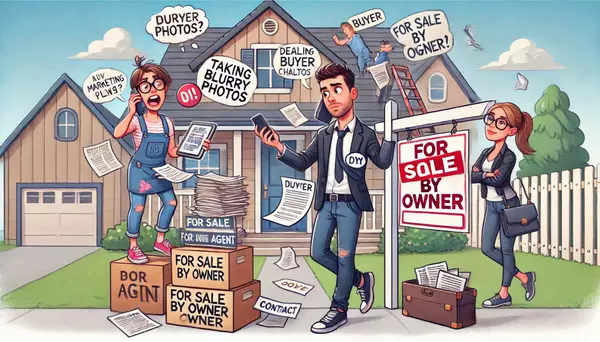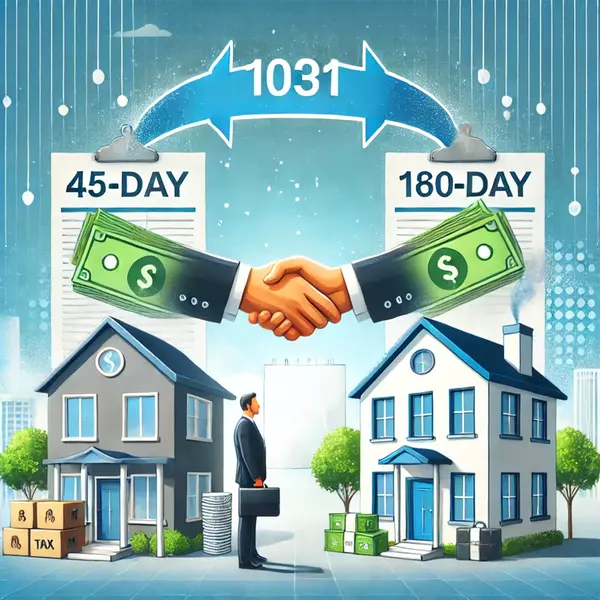How to Get Your Finances in Order Before Buying a Home

So, you’re ready to jump into the exciting world of home buying? Whether it’s your first rodeo or you’re coming back for round two, the secret to success is simple: get your finances in tip-top shape. Because let’s face it, buying a house isn’t just about swooning over open-floor plans or picturing
Read MorePricing Your House Right: Don’t Start Too High or it's All Downhill From There

So you’ve got your house all prepped and ready to hit the market, and you want top dollar for it, right? Naturally, you’re tempted to price it high to see what you can get. But here’s a truth every smart seller needs to know: When you price your house too high, there’s only one way negotiations are
Read MoreNavigating the Post-NAR Settlement World: What Agents Need to Know and How to Thrive

Hey there, fellow real estate agents! Unless you've been living under a rock (or maybe just spending too much time in open houses), you've probably heard about the recent National Association of Realtors (NAR) settlement. It's sending ripples through our industry, and if you're feeling a bit overwhe
Read More“I’ll Save the Commission and List It Myself” – Famous Last Words of Home Sellers

Why Selling Your Home Without a Real Estate Agent is Like Riding a Unicycle on a Tightrope Alright, let’s get something straight. Selling your home is not just about hammering a “For Sale” sign into the front yard and waiting for the offers to roll in. If that were the case, we’d all be sipping mar
Read MoreThe Art of Cold Calling: Why Your Ears Are Your Most Valuable Tool

Hey there, fellow real estate agents! Cold calling: the two words that can make even the most seasoned of us break into a sweat. But here’s a little secret: the real magic of cold calling isn’t in the script—it’s in your ears. That’s right, folks, your ability to listen is the most powerful tool in
Read MoreInvesting in Real Estate: Where to Begin

So, you’re ready to dip your toes into the world of real estate investing. Congratulations! Whether you’re dreaming of flipping fixer-uppers like a reality TV star or collecting rent checks from a fleet of charming rental properties, the real estate market offers a wealth of opportunities. But wher
Read More-

Selling High-End Homes with High-End Interest Rates: Strategies to Overcome Today's Market Challenges Ah, the luxury real estate market. The realm of opulent chandeliers, sprawling lawns, and kitchens larger than my first apartment. But in today's market, even the wealthiest buyers might balk at th
Read More The 1031 Exchange: Your Real Estate Superpower

So, you've heard whispers of the 1031 exchange—a tax-deferring strategy that’s the stuff of real estate legend. Imagine being able to sell an investment property, reinvest the proceeds into a new property, and defer capital gains taxes. Sounds like the kind of trick Houdini would envy, right? Well,
Read MoreStaging a Home - The Hilarious Art of Pretending You Don't Live Here

Welcome back, savvy sellers and curious buyers! Today, we’re tackling the fine art of home staging—the ultimate exercise in pretending your house is a minimalist showroom where no one actually lives. Grab your decluttering gloves and sense of humor, because things are about to get funny! 1. Declutt
Read MoreWhy my house is still for sale...

Why My House is Still For Sale: The Importance of Pricing CompetitivelyWhen it comes to selling your house, there are numerous factors that influence its marketability. From location and presentation to marketing strategies and timing, sellers have a lot to consider. However, one aspect that holds s
Read More
Recent Posts










